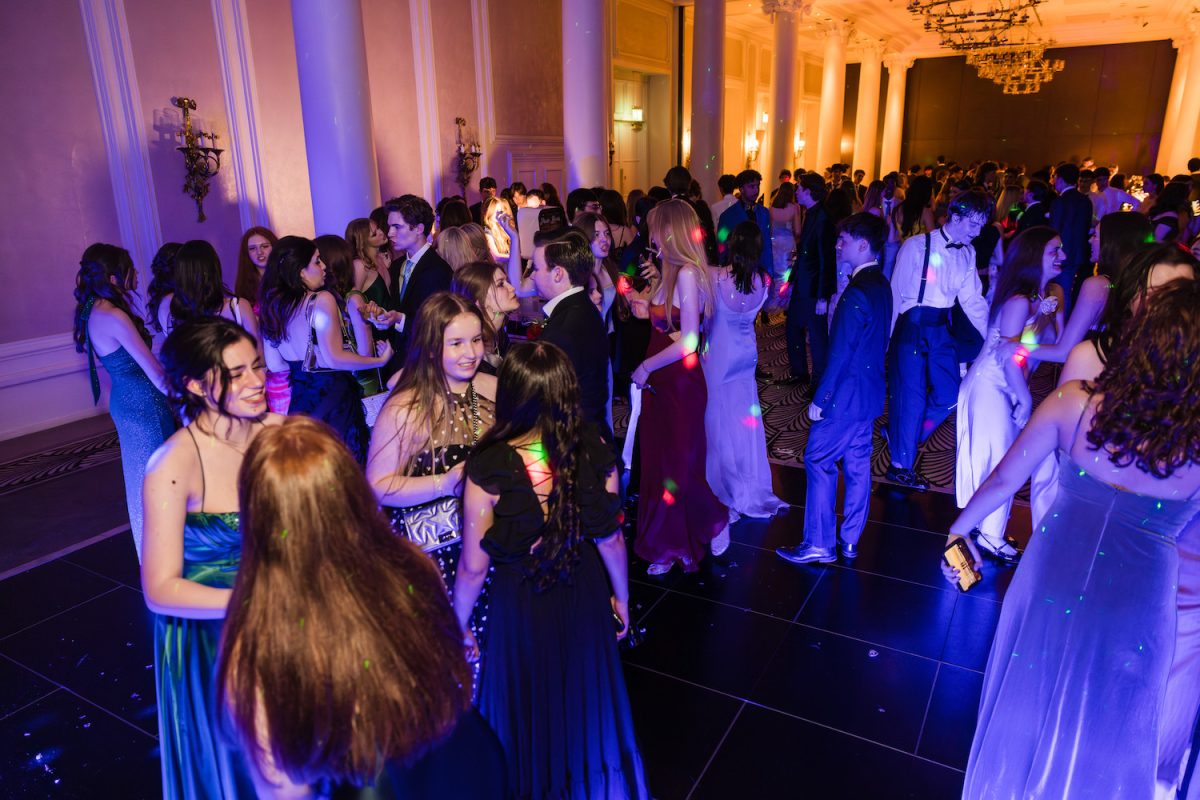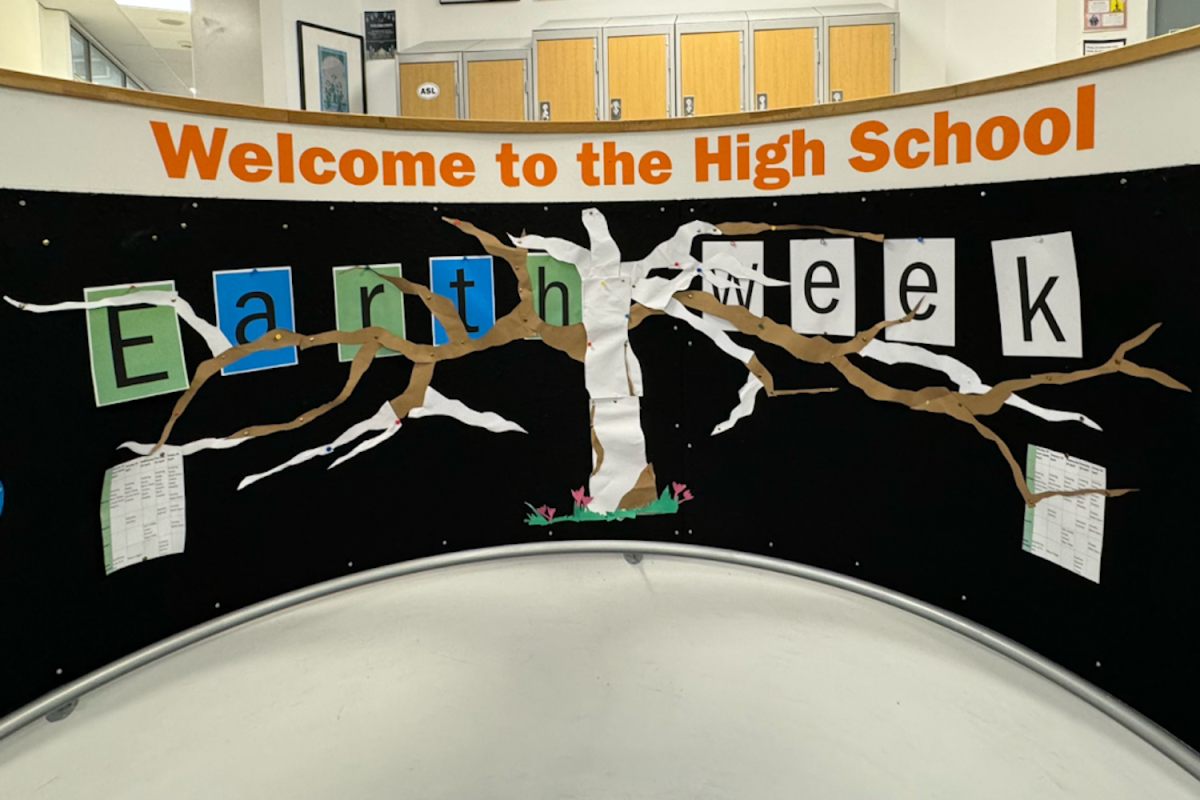Max Barnett (’15) is nine days too young to vote in this month’s general election. That, though, doesn’t stop him from poring over the news and watching the parliamentary debates. Barnett believes that it is your duty to be educated and involved in politics, regardless of age.
“I think it’s almost a duty to yourself: If you want the world to be a place where you enjoy living and that is for you, then you need to go out and make the change and read up,” he said.
The School
Barnett, in fact, sees the school as a place that is unusually active in its political activity. “A lot more people are more knowledgeable about U.S. politics, I think that it comes with [it] because almost everyone at the school has some U.S. connection [or] background,” he said.
Kris Westgaard (’16) agrees with Barnett and points to initiatives that have taken place in the past. In 2012, the Young Democrats Club celebrated the U.S. elections with a mock vote, informational posters and mass decorations around the school. Westgaard points to efforts like these that make the school unique. “I was a freshman but I saw how everyone was interested and it changed my perspective on how people view things,” he said.
The school’s political activity may be different because of its position as both an American and international school. Social Studies Teacher Sana Shafqat finds that the school’s international nature influences how the school experiences politics. “It’s clear that American kids often do have awareness of U.S. foreign policy, that in America, you might not have that awareness. I think there is that understanding that parts of the world aren’t just somewhere far away,” she said. “The advantage that children over here have is that they are able to access news sources and their friends who are from different places, who would be able to say ‘yeah, but didn’t you know that this happens?’”
The school’s international nature, Shafqat believes, does more than fuel a political awareness however. “I think it makes it very unique and refreshingly inclusive and yet it gives more people a sense of belonging,” she said.
However, not everyone feels that way. William Brummette (’17) feels that his political views are not welcome at the school. “The school has become quite politically correct. The school is very left-wing, everything from the history courses to whatever else they teach you, they are very left-wing,” he said. Because of this culture, Brummette sometimes feels uncomfortable voicing his opinions at school.
Many students, Brumette argued, are only politically aware because of their parents and peers. Brumette believes that many are not thinking for themselves. “I think students are very influenced by others, there are very few students who believe because of their own research. [Kids] haven’t challenged the thinking that school is putting on you,” he said.
Although students at ASL may be aware of U.S. politics, that doesn’t mean they know about politics in the U.K. “If you ask someone, no one is going to say ‘Oh I’m a Tory or I support Labour or Lib Dem’ they’ll say ‘I’m a Republican, or a Democrat, or I’m Independent,’” Barnett said.
For Assistant Principal Karen Bonthrone, her role as a curriculum as a leader and a member of the community has allowed her to see opportunities to further educate students. “Because it’s been coming up I’ve been talking to kids in various different situations about it, and it does make me aware of how little sometimes the students at ASL do know. And that has been, as a curriculum leader, that kind of makes me think, ‘well, is that something we should be addressing?” she said. “You know, should we have a sort of small unit on British studies? That everybody has to take. I mean it might not be in school, it could be in middle school, but at some point along the line should we be doing that?”
The Millenial
Generation’s Role
Although students may be politically aware, that is hardly the norm. Teenage voting in the U.K. has been less than the national average since the 1970s. According to the British Election Study, 51.2 percent of citizens aged 18-24 voted between 2005 and 2010, almost 15 percent lower than the overall rate of 66 percent.
Barnett can see why. He notes that U.K. politicians are especially oriented towards the elderly and often forget about the youth and their needs. “The fact of the matter is that one of the big policy things in the U.K. is catering to the elderly. A huge thing is that they’re giving out free bus passes, much more life support, easier gas bills, tax cuts, all this sort of thing to the elderly because they’re the ones who are going to vote,” he said.
Not only does Barnett cite the government gearing toward the elderly as a reason for the decline in votes, but he also believes that the younger generation does not believe that their vote matters. “Young people think ‘oh, I can’t make a difference’ but you can make a difference and you have to put your foot forward,” he said.
Having younger candidates, Westgaard believes, could help solve the problem. “Younger candidates tend to be charismatic and they tend to appeal to the youth, they look up to them, and they are a beacon of what government should be,” he said. Westgaard sees Barack Obama, one of the youngest presidents ever, as a perfect example of this. Through his charisma, Kris believes, he was able to reach out and engage young adults. Indeed, according to CIRCLE, in 2012 Obama was able to attain 60 percent of the youth vote – while his older opponent Mitt Romney only garnered 37 percent of the youth vote.
Even though teenagers are not eligible to vote until they are 18 years old, Westgaard believes it is still important to stay politically involved. “Before [eligible voting age] kids need to be aware and follow [politics], so when they reach that age they can have say and be impactful,” he said.
“For us, we are getting into a new era of technology and things are changing in terms of political spectrum,” Westgaard said. “So I think it’s really important to follow this and so we can make adequate decisions based on what the country’s needs.”
The Importance of Voting
For Bonthrone, politics – and by extension, voting – has been a way of life. “I came from a family where, coming [from a] very working class background, there was that interest and expectation that people would get involved, and that these things were important and [that people] were interested,” Bonthrone said.
Coming from a working class family – and one that was actively involved in trade unions – has always meant voting Labour for Bonthrone and her family. But as time elapsed, Bonthrone’s outlook on politics and her personal political views have changed.
“I’m a scientist, I want to look at things with different angles,” she said. “And so there is that question to me, that’s where my background where my heart lies but I also feel I’ve got that intellectual desire to at least look at the policies and question them.”
Traveling the world has had a significant impact on the way Bonthrone sees voting. “Because I’ve lived internationally and I’ve seen different systems at work, the fact that this is a democracy and it’s a democracy that’s probably pretty fair … when you travel a lot you begin to realize how important it is to vote, because you have that opportunity, because it is denied to so many people,” she said.
Shafqat grew up in Pakistan, a country that has had a long history with military dictatorships. Growing up, she yearned for the right to vote and share her voice. Only when she moved to the U.K. was she finally able to do that. To Shafqat, it was an experience like no other. “It was the biggest thrill possible. I felt like a charge going into a wooden booth to put a cross on the ballot,” she said.
Barnett is confident that a single vote has the ability to change and improve the future. “Every voice among the cacophony comes from a single person and so you have to shout for what you want and to do that you have to vote,” he said. “In voting there is power, no matter what pessimists or skeptics will tell you.”







